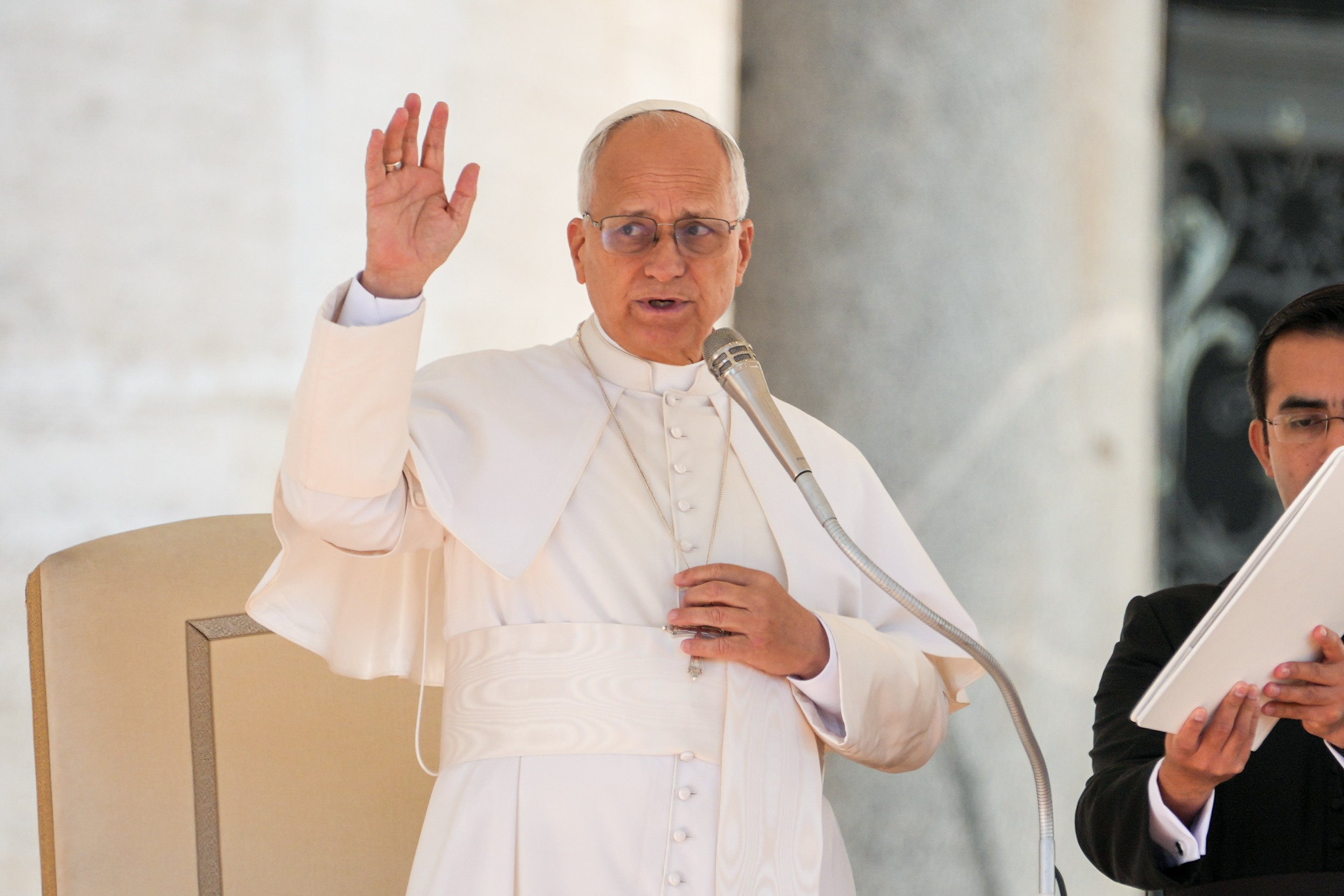April 6, 2018 at 1:53 p.m.
'And she gave birth to her firstborn Son and wrapped Him in bands of cloth, and laid Him in a manger, because there was no place for them in the inn...' -- Luke 2:7
(Editor's note: This column is based on the readings for midnight Mass at Christmas.)
Have you ever noticed the contradictions in the two Gospel narratives of Jesus' birth? Perhaps one of the most significant disagreements revolves around where Joseph and Mary lived before their Son's birth.
In Sunday's Luke 2:1-14 passage, they originally reside in Nazareth and temporarily end up in Bethlehem because of a return-to-hometown-census decreed by Caesar Augustus -- a census no historian has yet been able to track down. After a short stay in David's city, the three return to Nazareth, where Jesus spends His childhood.
In Matthew, on the other hand, Joseph and Mary already live in Bethlehem. Their roundabout path to Nazareth is triggered by King Herod's slaughter of children in an attempt to kill the Messiah -- an atrocious act that National Geographic claimed several years ago probably didn't happen. The Holy Family first flees to Egypt, then, instead of returning to Bethlehem, eventually settles in Nazareth.
Combo deal
We've traditionally gotten around any contradictions by combining the two narratives into a third account. Most of us believe we're listening to historical, accurate accounts of this important event, yet we're actually coming into contact with each evangelist's unique theology, not unbiased history.
If we only had one Gospel, we might be excused if we think we're listening to history. Thankfully, we have two narrations of the circumstances of Jesus' birth. The contradictions are one proof we're dealing with theology, not history.
It's one thing to see something happen, but quite another to understand the meaning of what happened. Theology's main goal is to convey meaning. There's always more than one set of implications for any given event.
Our own experience
Like most Christians of his day and age, Luke was theologically convinced that Isaiah was speaking about Jesus as Messiah when, in Sunday's first reading (Isaiah 9:1-6), he proclaimed the Messiah's Prince of Peace "dominion" over all people.
No wonder Luke calls upon angels to announce "peace to those on whom [God's] favor rests." If you've experienced such peace in your following of Jesus, then you mention something about that peace in your birth narrative.
The unknown author of the letter to Titus does something similar in our second reading (Titus 2:11-14). Because he theologically interprets Jesus' death and resurrection as a cleansing of ourselves from "lawlessness," he encourages his readers to "reject godless ways and worldly desires" until the day the risen Jesus returns in glory.
As meaningful as this theology is for many Christians, it significantly differs from Luke's theology of the same event. In our celebrations of Christmas, let's start with our own personal, unique experience of the risen Jesus in our lives. Is there anything we've read or seen that would help others know what happens when we daily imitate Jesus -- or would help ourselves more deeply understand that experience?
Jesus' birth not only had meaning for people 2,000 years ago, it should also have meaning for us today.[[In-content Ad]]
SOCIAL MEDIA
OSV NEWS
- Live blog: Public session of 2025 USCCB Fall assembly opens today
- US bishops celebrate Mass to ‘beg the Holy Spirit to inspire’ their fall assembly
- As deal to end shutdown advances, Catholic groups urge action on health insurance costs
- Texans vote overwhelmingly to enshrine parental rights in state constitution
- Supreme Court declines Kim Davis case seeking to overturn same-sex marriage ruling
- ‘Do you love Jesus more than your political opinion?’: Bishop Tyson says the church faces a test
- Vatican says Swiss Guards investigating alleged antisemitic gesture
- Bishop: Survival of Christian communities in Nigeria depends on security, justice
- Pope asks for extra care when using AI in medicine
- Pope holds long meeting with Belgian abuse survivors








Comments:
You must login to comment.